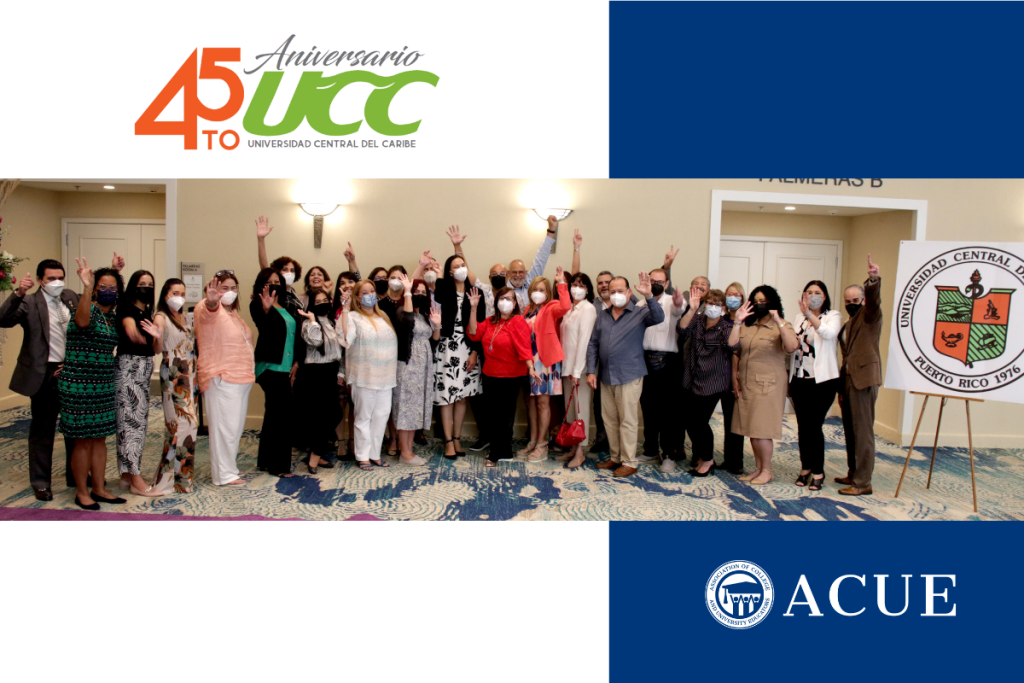“Quality is the path to impact, equity, integrity.”—Jonathan Gyurko
On October 27, 2020, American Enterprise Institute (AEI) hosted a webinar featuring insights on the state of teaching in higher education from Jonathan Zimmerman, a professor of History of Education at the University of Pennsylvania and author of The Amateur Hour: A History of College Teaching in America; Aimée Eubanks Davis, founder and CEO of Braven; and Jonathan Gyurko, president and co-founder of ACUE.
Key Takeaways from the Conversation
Currently, there’s no concrete system for implementing quality teaching.
Zimmerman discussed how while there has been a movement toward personalizing teaching and learning and increasing understanding about the nature of good teaching, there’s no system in place for putting this knowledge into practice.
“It’s not as if higher ed doesn’t have a student success agenda,” Gyurko agreed. He noted, however, that most efforts toward this goal take place outside of the classroom. “But it’s professors who spend more time with students than any other college professional.”
Davis added that there seems to be a fallacy that quality teaching matters more at the K-12 level, and once students enter college, they don’t need that support. “There’s supposedly a magic that happens,” she said. “Then there’s less accountability to see whether a young person is ‘on track.’”
“Change is slow, and that’s the fundamental problem,” Zimmerman said.
There must be an impetus for revolutionizing teaching.
“Good teaching has been held against people” previously, Zimmerman said, adding that students haven’t demanded quality instruction yet. He pointed to student protests leading to change in the past and suggested that a similar movement could lead to change in this arena, too.
Gyurko said that ACUE, which was founded specifically to equip faculty with quality instruction practices, needed to demonstrate that good teaching can make a difference. “What will motivate the investment of time and energy such that the culture and circumstances change?”
Ultimately, he noted, institutions need to see that good teaching leads to financial success. ACUE, he said, has demonstrated the value of training faculty in evidence-based instructional methods through studies that found that students taught by ACUE-credentialed faculty had better retention and lower DFW rates at institutions like Broward College. This data “has been key to demonstrating the value of teaching and ACUE’s work.”
Davis said that the missing piece that’s so critical is the “For what?” component. “We need to make sure a student knows the why and how. People are always nervous or skeptical about doing things a different way in education.”
Braven seeks to equip underrepresented young people with the skills to transition from college to meaningful careers, and, Davis noted, relationships with colleges and universities are key.
“It doesn’t take that much to help our faculty members take their teaching to that next level,” she said. But that doesn’t mean there isn’t still skepticism. “I wish there could be awards for people who are doing strong teaching.”
Higher education should seek out new ways of evaluating teaching.
“It’s important that we frame students evaluations as something necessary but not sufficient,” Zimmerman said. “We need more measures [like] real peer review and analysis.”
“Evaluation is premature,” Gyurko argued. “We don’t know what the baseline is.” Like Zimmerman, he advocated an expert peer review process. “We should focus on the value of the work instead of the politics surrounding it.
Meanwhile, Davis believes that feedback is essential. “I’ve realized you can create a feedback loop that benefits the student.”
Ultimately, as Davis said, “If you can see yourself as part of the solution, usually you’ll get behind it. It can’t be forced.”

 Higher education leaders and ACUE head to Baltimore this week for the American Association of State and College Universities’ 2017 Academic Affairs Summer Meeting. Attending? Join us as we discuss why curricular coherence is only as effective as professors’ ability to communicate it.
Higher education leaders and ACUE head to Baltimore this week for the American Association of State and College Universities’ 2017 Academic Affairs Summer Meeting. Attending? Join us as we discuss why curricular coherence is only as effective as professors’ ability to communicate it.
 “We prepare the doctors, scientists, and health care professionals to serve their communities in Puerto Rico and beyond,” says President Crespo Rivera. “Our faculty are experts in their fields, but we wanted to ensure they were also equipped and supported for their role as educators.”
“We prepare the doctors, scientists, and health care professionals to serve their communities in Puerto Rico and beyond,” says President Crespo Rivera. “Our faculty are experts in their fields, but we wanted to ensure they were also equipped and supported for their role as educators.”  At the pinning ceremony,
At the pinning ceremony, 